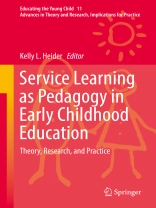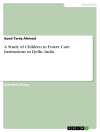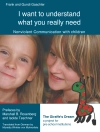This book presents the most recent theory, research, and practice on service learning as it relates to early childhood education. It describes several service learning programs, many of which were developed to better prepare pre-service teachers for the challenges they face in today’s early childhood classrooms, including class size, ever-changing technology, diversity, high-stakes testing, parental involvement (or the lack thereof), and shrinking budgets. The book shares stories of positive outcomes from pre-service teachers who, having participated in service-learning programs, report a shift in their attitudes and beliefs including an increased empathy for others, a heightened sensitivity to student differences, more democratic values, and a greater commitment to teaching. In addition, the book examines the effects of service learning and positive outcomes for children and teacher educators as well.
Schools today face an increasing number of language learners, the mainstreaming of special population students, and working with a standards-driven curriculum. All of these present new challenges for teachers as they attempt to meet their students’ educational needs. As a result of this new classroom environment, and the educational needs they present, teacher educators must now seek different approaches to prepare prospective teachers to meet these needs because the traditional approaches to teacher preparation, such as coursework independent of fieldwork, are no longer effective in equipping teachers to address these issues. This book examines in detail the new approach of service learning.
Tabla de materias
Foreword.- 1. Integrating Service Learning into Early Childhood Teacher Education: A Theoretical Perspective; Ithel Jones.- 2. Redefining Early Childhood Epistemology: Exploring Service-learning Pedagogy in an Early Childhood Context; Christian Winterbottom and Mary Frances Munday.- 3. Preschool Teacher Education in Sweden and Australia: The Importance of Reflection for Understanding Context; Susanne Garvis and Sonja Sheridan.- 4. Academic Service Learning and Cultural Competence in Teacher Education; Regena F. Nelson, Evelyn Winfield- Thomas and Moi Mooi Lew.- 5. Shaping Service-learning Spaces for Preservice Teachers to Experience and Learn to Teach for Diversity; Claire Desrochers.- 6. HBCUs to the Rescue: Utilizing Service-learning Pedagogy to Improve Teacher Preparation in Early Childhood Education; Gerrelyn C. Patterson, Yolanda L. Dunston and
e: 13.3333px;’>Kisha N. Daniels.- 7. Open Doors Field Trips: Making Connections with Minority Students through the Creation of Vision Boards; Natalie J. Young.- 8. Interdisciplinary Service Learning: From Teacher Education Programs to Early Childhood Facilities; Annah L. Hill.- 9. Service Learning in the Sullivan Literacy Center; Gina M. Doepker.- 10. Service Learning through a Literacy Tutoring Program; De Anna M. Laverick and Kelli R. Paquette.- 11. Service Learning as the New Lab School: Engaging Pre-service Art Educators within Local Communities of Art and Knowledge; Marissa Mc Clure.- 12. Tackling Science Instruction through “Science Talks” and Service Learning; Tina J. Cartwright and Suzanne L. Smith.- 13. “If I’m in the Grass and These Boots Overflow, I Could Water the Plants”: Exploring the Natural World as Service Learning with Young Children; Maureen Vandermaas-Peeler, Cara Mc Clain and Cynthia Fair.- 14. Problem-Solution Projects with Young Children; Francheska D. Starks, Lindsay Wyczalkowski, Stacie Walker and Vera L Stenhouse.- Afterword.












